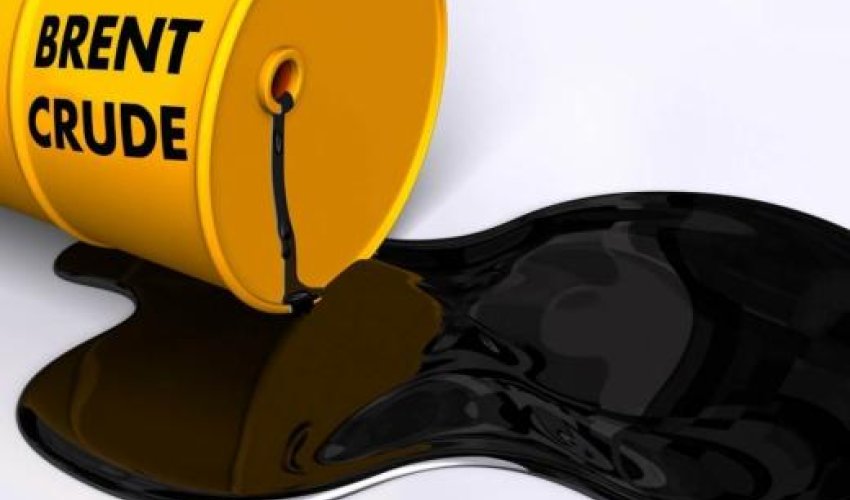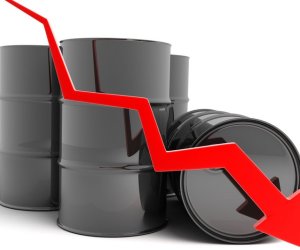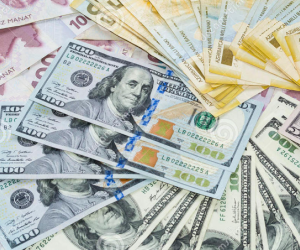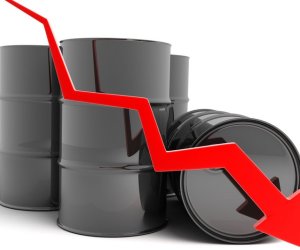Oil producers seek to shore up finances amid crude price plunge

Oil-dependent governments are coming under pressure from the lowest crude prices since the COVID-19 pandemic, with officials preparing policy responses for a drop in revenue such as issuing more debt and reducing spending.
Brent crude plunged more than 15% in the days following U.S. President Donald Trump’s aggressive tariffs, as the escalating trade war between the U.S. and China spurred worries about recession and energy demand. The same week, the OPEC+ cartel put forward a plan to increase supply next month. Brent sank below $60 a barrel, falling to the lowest level since February 2021.
Past oil price crashes have forced painful reforms for governments that rely on income from crude exports. A decade ago, when Saudi Arabia sparked a price war with the U.S. shale industry and Brent fell to $36 a barrel, Riyadh slashed spending and cancelled energy subsidies. Libya burned through central bank reserves and scrapped infrastructure projects while Iraq had to turn to international aid to stay afloat.
“The oil price drop we’ve seen over the last week has taken us into territory where for a lot of oil-dependent economies, it’s not going to be what they need to balance their budgets, nowhere close,” said Richard Bronze, head of geopolitics at Energy Aspects.
“For some of them, that puts at risk core public spending, raising the risk for political instability and unrest.”
Brazil is preparing an extra auction this year for stakes in offshore oil areas to boost revenue, according to four sources who were not authorized to speak publicly on the matter. The plan gained steam due to the fall in oil prices and rising global trade uncertainty, they said.
"We are worried and the yellow light is flashing," said
Claudio Castro, governor of the Rio de Janeiro state, adding that he plans to hold spending. Brazil’s budget for 2025 planned for an average Brent price of $80.79.
Other producer countries are planning to plug their shortfalls with debt. Kuwait passed a law last month to allow its government to tap international debt markets for the first time since 2017. The country’s finance minister Noora Al-Fassam said it was important to improve the flexibility of public finances.
Saudi Arabia has also leaned on bond markets in recent years to finance the spending boom it has embarked on to diversify its economy. The kingdom faces mounting pressure to cut spending after the plunge in crude prices, complicating the ambitious plans to build out megaprojects such as the Neom City. The International Monetary Fund estimates that Riyadh needs oil prices of over $90 a barrel to balance its budget.
“We are assessing the recent developments and stand ready to take whatever policy decisions needed to ensure that our fiscal position remains strong,” said a Saudi finance ministry spokesperson in response to Reuters questions.
Oil prices spent the first quarter of the year trading in a range between $69.28 and $82.03, weighed down by China’s slowdown and OPEC’s looming supply increase. This already posed a challenge for governments that rely on high oil prices, with the latest slide accelerating pressure.
The Russian economy slowed sharply in recent months, with industrial sectors outside of defence stagnating. The economy is expected to contract further if the fall in oil prices and turmoil in global markets persist, analysts said. Pressure is mounting on the country’s central bank to lower interest rates, despite persistent inflation.
Moscow had based its 2025 budget on an average price of $69.70 per barrel. The Mexican government was expecting $62.50. For Iraq, which depends almost exclusively on oil revenues for spending, crude prices below $70 are a problem. The price plunge is likely to curb Baghdad’s infrastructure building spree as it tries to reconstruct after decades of conflict.
Nigeria was expecting to draw more than half of its total revenues from energy exports. Analysts say the government needs to reassess these targets to reflect global realities. The country has previously doubled down on borrowing during times of lower oil prices, rather than cutting spending.
Even before the recent fall in oil prices, Venezuelan President Nicolas Maduro has already reduced public workers’ hours to curb power consumption, including at state oil company PDVSA. He also declared an economic emergency in the South American country.
Trump tightened U.S. sanctions on Venezuela and signed an executive order to impose secondary tariffs on any country that imports Venezuelan crude, leading to a hiatus in the oil exports that finance the state budget. Lower oil prices will increase pressure on Maduro to curb spending further.
Iran relies on oil revenues for around a third of its budget, with its benchmark price set at 57.50 euros ($64.38) per barrel. Tehran is also concerned about Trump’s renewed “maximum pressure” campaign which targets Chinese buyers of Iranian oil. Whether China continues to import Iranian crude in the midst of the trade war with the U.S. will be the deciding factor for Tehran’s finances.
“Venezuela and Iran are hit by a double whammy from Trump. His policies are hitting their oil exports, while they’re also having to endure lower oil prices,” said Jason Tuvey, deputy chief emerging markets economist at Capital Econo.




































 Photo
Photo 



 Video
Video 

